Killing the Wittigo: Indigenous Culture-Based Approaches to Waking Up, Taking Action, and Doing the Work of Healing
ECW Press, 2023
A powerful book that uses plain language to talk about colonial trauma and transformational change.
History. Identity. Lateral violence. Complex trauma. Who are we and how are we seen? How do we learn what safety is when we’ve never experienced it? How do we turn distressing feelings into emotions that we can understand? Killing the Wittigo talks about the effects of colonization and the healing work being done by young Indigenous people toward individual and systemic change.
Sexual abuse. Relationships. Kindness and kinship. Are your relationships harmful or healthy? What do healthy families look like? Killing the Wittigo shatters the isolation and shame to talk about everything from managing triggers to what young people are asking of their parents and their leadership.
more...“This is an uncomfortable book to read – but it is meant to be. This concise but broad-ranging work examines the lasting emotional and psychological impacts of colonization on Indigenous people in the U.S. and Canada. Throughout, activities help readers learn about themselves and process what they have read. Along with a variety of fonts, line art, and interesting graphics and charts, quotes and social media posts from young Indigenous people discussing their experiences add to the mixed-media appeal. These voices also give readers the feeling that they are not alone. The chapter on lateral violence, intracommunity dysfunction that is usually not openly addressed, is particularly valuable.” Kirkus Reviews
“Educator and agency worker Methot offers young adults suggestions for breaking the cycle of intergenerational trauma in order to live their best lives. Writing from a trauma-informed perspective and including trigger warnings, she provides examples of colonial practices that harm Indigenous peoples, explains how this stress is passed down in families, and provides some examples of healing at work. While Indigenous teens are the obvious audience, this is an eye-opening and important resource for anyone concerned with North America’s colonial legacy.” Booklist (starred review)
“Community-focused, easy to read, and filled with concrete examples and stories, the book not only uplifts healing in Indigenous communities, it also turns the lens to talk about what settler society needs to do to create systemic change. A great, graphic-heavy resource for Indigenous young people, educators, and anyone looking to expand their understanding of the ripple effects of trauma, Killing the Wittigo is essential reading.” Open Book
“Colonization is traumatizing the Indigenous population even now, and this is going to be uncomfortable for some. But reality and truth are always uncomfortable, right. As a person of color myself, I know this for a fact. The book is meant for young adults, but everyone who wants to know more about intergenerational trauma can read it. In fact, everyone should read it. This book is rich with psychoeducation as well as practical exercises for being anchored, centered, and present in our self.” Goodreads
“I truly enjoyed reading Killing the Wittigo by Suzanne Methot. I love the stories, ceremonies, and teachings. The book is very thought provoking, and bringing wittigo into the modern day hardships of our people is brilliant. Yes, wittigo is trauma and mental health. Very few people can go through life without some kind of trauma, but what happened to the Indigenous community was life altering. The physical abuse, sexual abuse, emotional abuse, and grieving – our families are suffering so much. We don’t just get over it, and the intergenerational hurt will be with our community for a long time to come. This book will help people look at their trauma in a different way. Our culture and ceremonies have always helped our people, and the cultural approach is on point. This has always been our way to living a good life. The book gives cultural credibility back to our youth.” Harvey Manning (Anishinabe), Community Worker
“I like Suzanne’s style of writing – it’s like she’s in the room with me. I was at page 54 when I realized that, even at my age, the journey of healing never stops.” Nicole Tanguay (Cree/French), Writer and Community Worker
“Killing the Wittigo is written with a clear understanding of trauma and its many aspects. The book is an in-depth look into the reader’s life experiences, bringing them to an enlightened knowing of self. The most powerful part is offering the tools needed to heal while living in more happiness and peace. I highly recommend this book to everyone.” Joanne Dallaire (Āhtawāpiskatowi Ininiwak), Elder and Senior Advisor, Toronto Metropolitan University
“This young adult version of Suzanne Methot’s award-winning book Legacy: Trauma, Story, and Indigenous Healing provides a thought-provoking exploration of the legacy of colonization on Indigenous communities. It delves into the long-lasting effects of trauma, but also foregrounds Indigenous resilience by sharing stories of young people who have started on their own healing journeys. Through these powerful accounts of decolonization, transformation, and change, readers will gain a deeper understanding of the complex challenges still faced by Indigenous communities today.” TEACH Magazine
Ontario Library Association Best Bets Book List 2023
Chicago Public Library Best Teen Non-Fiction of 2023
Toronto Public Library The List (Best 100 Newly Published Books for Teens)
Massy Books Indigenous History Month reading list
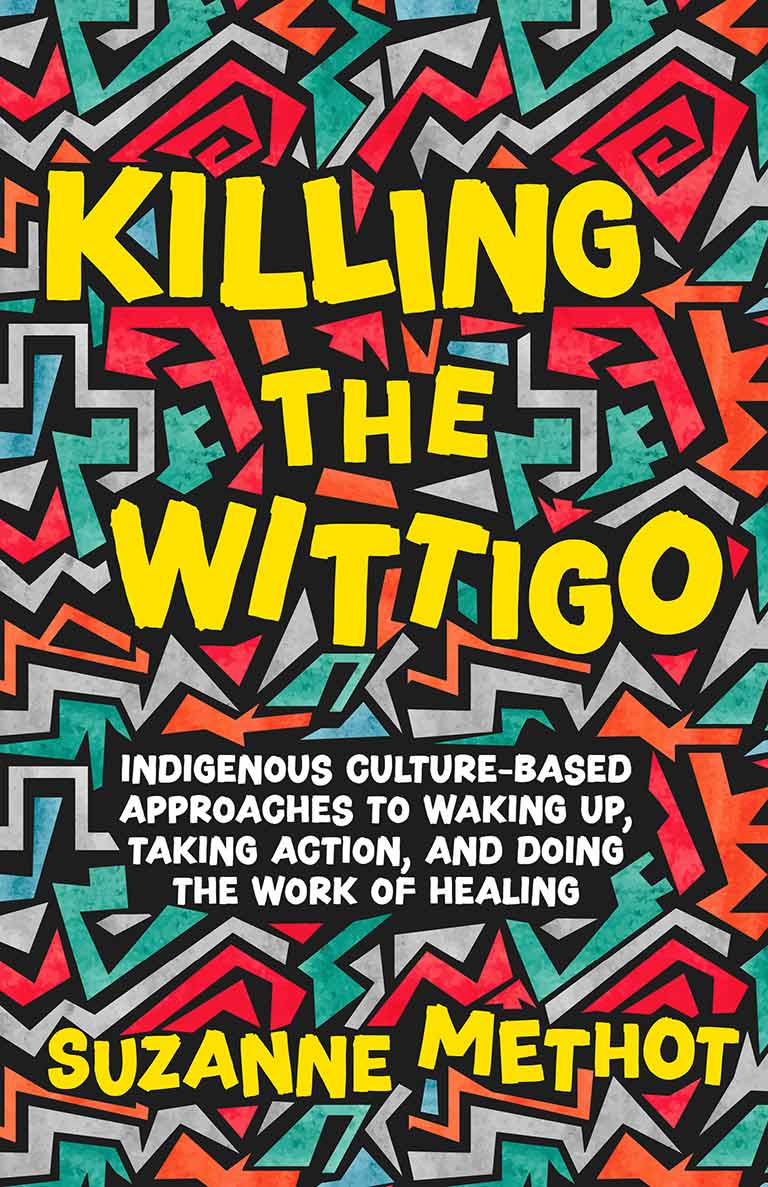
Now available in bookstores and online.
Legacy: Trauma, Story, and Indigenous Healing
ECW Press, 2019
A provocative and empathetic exploration of Indigenous intergenerational trauma and strategies for healing, for Indigenous and non-Indigenous readers.
Healing from intergenerational trauma looks different for each person and each community, but it begins with story — because stories make the world. What we tell and how we tell it shapes who we are and what we hope to become. But healing from colonial trauma is not just work for Indigenous people. Non-Indigenous people must also re-write the narrative of genocide and oppression, working with Indigenous peoples to create another, better way of living.
In this book, author and educator Suzanne Methot shares her own and others’ stories to trace the roots of colonial trauma and the mechanisms by which trauma has become intergenerational. She also explores Indigenous ways of knowing and being that can lead us toward change.
more...“Important background reading in a time of Canada-First Nations clashes.” Margaret Atwood, via Twitter
“This book is accessible, relatable, and full of storytelling about real people. It deeply resonates with me as a traditional counsellor, educator, and Indigenous person. Suzanne Methot, a brave Nehiyaw writer and community helper, takes up the challenges of logically explaining a child’s traumatized brain and body and how these impacts continue into adulthood. Methot also explores Indigenous health-care models, proving that Indigenous values provide solutions. This book uncovers the critical need for legislation that moves from creating ‘a renewed relationship’ with Indigenous peoples to creating real structural change.” Dr. Cyndy Baskin, Mi’kmaq Nation, Associate Professor, School of Social Work, Toronto Metropolitan University
“In her powerful first book, Nehiyaw writer and educator Methot … shows how colonialism set in motion a self-perpetuating cycle of trauma by destroying the support systems inherent to Indigenous societies, thus robbing members of their agency and identities as well as the ability to form the healthy relationships needed for personal development and growth. The helplessness engendered by the disruption of these communities and traditions, Methot argues, leads to anger that finds expression in lateral violence, further weakening community bonds. The application of Indigenous concepts such as the medicine wheel … provides a method for Indigenous peoples to reclaim their stories. A deeply empathetic and inspiring work with insights of value to anyone struggling to overcome personal or communal trauma.” School Library Journal
“Legacy is sure to be found on classroom syllabuses in years to come. It offers Indigenous readers testimony and some tools, and provides non-Indigenous readers depth of scope for understanding the relationships that exist between Indigenous peoples, their nations, and Canada.” Quill & Quire
“This is a really important book, especially for the non-Indigenous, settler population. This book helped me finally understand what reconciliation will take.” Goodreads
“This powerful and insightful book calls for the reconnection between Indigenous people and the natural world as an aspect of Indigenous healing – these relations being severed by the impacts of colonialism. Legacy can be used as a tool for readers and particularly educators who want to gain more knowledge on the cultural importance of Indigenous stories and ways of being, the harmful and ever-rippling impacts in colonial Canada and the aftermath of intergenerational trauma that it has caused. A poignant and critical book, Methot delivers a significant piece of work for both Indigenous and non-Indigenous people alike.” Tori Chief Calf (Blackfoot, Kainai First Nation), UBC School of Social Work
“An important addition to the Indigenous library shelf.” Booklist
“This beautifully written book … discusses damaging, toxic patterns of behaviour, thought, and physical illness as a direct result of unresolved grief and loss from colonialism and genocide. In crystal-clear prose, Methot has written a book that is both easy to follow and crucial to read.” Book Marks
“Storytelling often gets us into trouble by creating a limiting narrative of our life, one that can avoid responsibility for our own lack of respect and reciprocity for others in our community. [Methot] cautions readers about getting stuck in old stories of anger, blaming, shaming, projection, righteousness, emotional insulation, vengeance, and rightness. She explains the hazards of binary thinking in a victim versus perpetrator world that misses the continuum so many of us reside on, moving from helplessness to power over. Restorying, or the crafting of a more realistic and positive story of suffering and redemption, can provide a coherent narrative while injecting meaning to past events that eventually can make sense of the craziness we may have endured. The author, in writing this book, restories her life in front of us all. If you are a victim, or a victim who has perpetrated, I recommend you read this book. If you are a therapist it is must reading. This is more than a good read. It is an essential way of knowing, not only about trauma, but an aid to understanding ourselves more deeply.” Geral T. Blanchard, author of Transcending Trauma: Post-Traumatic Growth Following Physical, Sexual, and Emotional Abuse and Ancient Ways: Indigenous Healing Innovations for the 21st Century
Ontario Historical Society Huguenot Award 2019-2020
Gold Medal, Current Events/Social Issues, Independent Publisher Book Awards
Mental Floss list: 20 Essential Books by Indigenous Authors
UBC Faculty of Education: Top 10 Indigenous Books list
Toronto Star list: Indigenous Books & Podcasts
Greater Sudbury Public Library reading list
CBC Books Indigenous History Month reading list
CBC Books reading list: World Mental Health Day
Book Marks Decolonize Your bookshelf reading list
Take Charge of Your Health: 5 Essential Spring Reads list
Must-Read Books: Health Coaches and Clients list
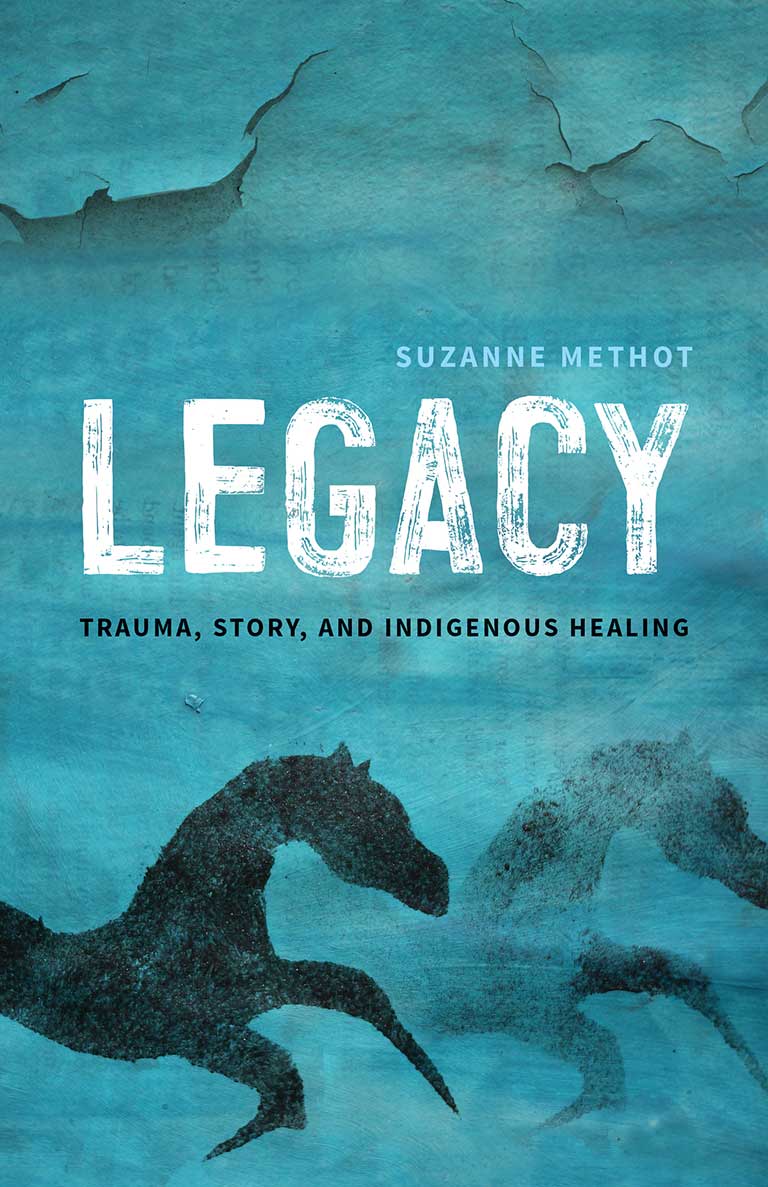
Now available in bookstores and online.
Aboriginal Beliefs, Values, and Aspirations
Goodminds/Pearson Canada, 2011
This student textbook was written for the Ontario Ministry of Education’s Grade 11 Native Studies course (NBV3C). The writing process was a collaborative one, involving First Nations, Inuit, Métis and non-Indigenous teachers, cultural consultants, advisors, language consultants, artists, editors, and writers. The nine chapters are organized into four key units: Spirit of the Land, Diverse Identities, Sovereignty and Self-Determination, and Resilience, Renewal, and Rejuvenation.
Each chapter contains features such as Voices of the Peoples interviews, Community Close-up case studies, Words Matter definition boxes, Reflection boxes, and Thinking It Through questions. There are also Building Your Skills extensions and Web Connects resource boxes. Specific topics include Indigenous cultures and worldviews; relationships with the land; hunting and fishing rights; economy, trade, and resources; Indigenous identities; myths and stereotypes; Indigenous families and communities; governance and leadership; treaties; protests and resistance; urban issues; education; policing and justice issues; and languages.
more...Numerous colour photographs, maps, and charts assist students in their learning about about the cultures and beliefs of First Nations, Inuit, and Métis peoples in Canada in the past, present, and future. The text includes a helpful glossary of terms, pronunciation guide, index, and opening and closing prayers, greetings, and farewells in several Indigenous languages. Text includes a Teacher Resource binder with CD-ROM and website access.
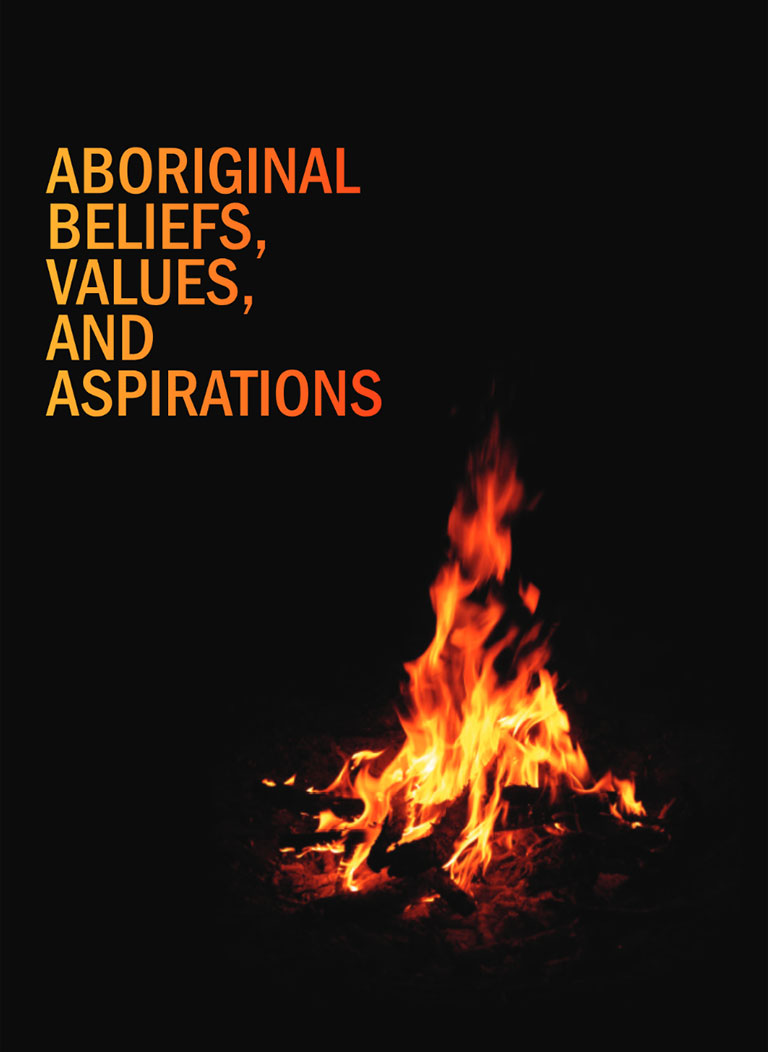
Now available online:
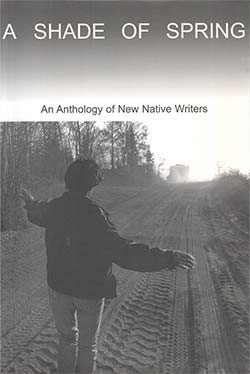
A Shade of Spring: An Anthology of New Native Writers
7th Generation Books, 1998
“Achimowin,” “From the Watchtower,” “Testimony” (poems)
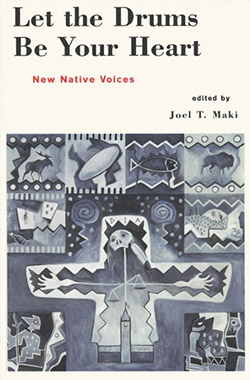
Let the Drums Be Your Heart: New Native Voices
Douglas & McIntyre, 1996
“We Are People, Just Like You: The Story of the Lubicon Cree” (essay)
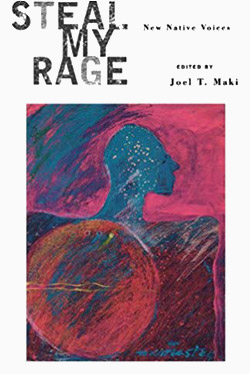
Steal My Rage
Douglas & McIntyre, 1995
“In the Moon of the Red Blooming Lilies,” “To a Healing Man” (poems)
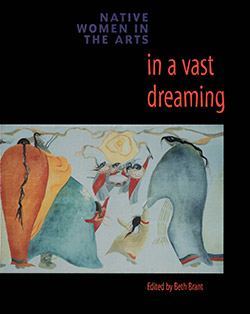
in a vast dreaming
Native Women in the Arts, 1994
“Protective Custody” (short story)















